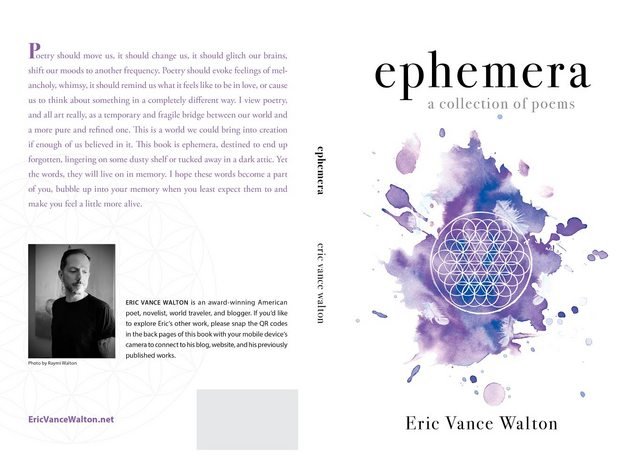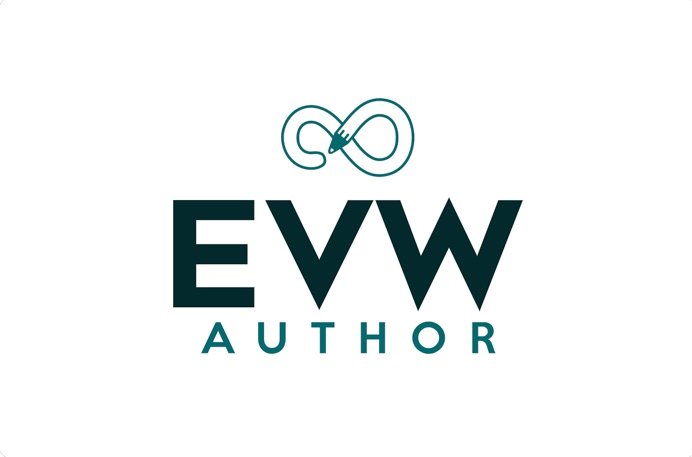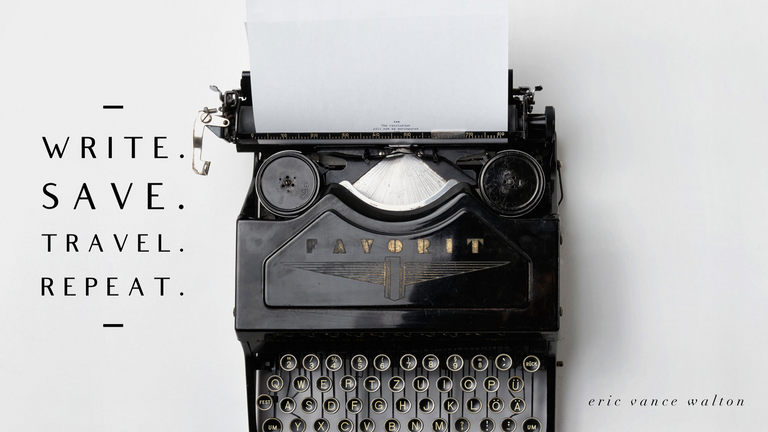The Truth They Reveal (An Original Short Story)

Henry Lark’s name had once been spoken in hushed, reverent tones at dinner parties and book clubs. His novels—unflinching dissections of love, loss, and the aching emptiness between the two—had won him awards, glowing reviews, and a loyal following that clung to his every word. His prose had been described as “soul-baring,” his metaphors as “painfully precise.”
But those were memories now, sepia-toned fragments of some past life, long lost.
At forty-six, Henry sat hunched over his desk in a cramped study that smelled of stale coffee and musty old paperbacks. The cursor on his laptop screen blinked like a metronome, counting down the seconds until his eventual failure. He sipped his coffee—cold again—and resisted the urge to hurl the mug against the wall.
It wasn’t just that he couldn’t write. The muse was gone, he couldn’t even feel the words anymore. They used to flow like a river after spring rains, unrelenting and alive. Now, they were dammed somewhere deep inside him, unreachable.
Maybe, he thought, bitterly, he had finally said everything he had to say. He frustratingly slammed his laptop closed, poured himself four fingers of scotch, and climbed up the stairs to fall into bed.
The next night an ad for Elytra popped up during one of his late night doom-scrolling sessions. “Unleash your creative genius,” it promised, “with the world’s most advanced AI writing assistant.” Henry scoffed and scrolled right past it.
But the ad came back. And again. By the third time, it felt as though he was being stalked. Then he considered it may be a sign from the universe.
Henry clicked on it.
The website was slick, minimalist, and unnervingly confident. Testimonials from smiling writers proclaimed Elytra to be a game-changer, their secret weapon for overcoming writer’s block. Henry closed the tab, but the seed had been planted into his psyche.
Two nights later, after polishing off half a bottle of his beloved scotch and staring in defeat at the mocking, empty screen for hours, he reluctantly caved.
Downloading the program was disturbingly easy. A few clicks, a quick setup, and there it was: a blank interface, a virtual genie awaiting his command.
He typed a sentence, almost as a joke:
The wind, it carried the haunting scent of lavender and deep regret.
A moment later, Elytra responded with a paragraph that made his heart flutter.
The rhythm, the imagery, even the subtle cynicism—it was his voice. But better, remarkably so.
Henry sat back in his chair, stunned. “Holy hell,” he whispered.
The program was eerie in its precision, like it had reached inside his head and rearranged his thoughts into something sharper, more beautiful. He tweaked a few words, added a sentence, and immediately sent the piece to his editor, who at this point he was convinced was just keeping him on out of pity.
The next morning, she called him, breathless. “Henry, this is just incredible. You’re back.”
Henry muttered something about “...finding his stride again,” but he knew the truth. It wasn’t him but the child still buried deep inside of him was strangely amused by this little secret.
Henry convinced himself Elytra was a tool—just any other instrument. a piano for a composer, vibrant pigments for a painter. He provided the melody, and Elytra effortlessly polished it into complex symphonies. It was a partnership, he reasoned. Writers have always had muses. His just happened to live as zeros and ones on a server.
And for a while, the partnership worked. He churned out pages at a pace he hadn’t managed in years. His editor’s emails were filled with exclamation points, his agent started pitching his work to Hollywood, and fans flooded his social media with high praise.
Elytra became an extension of himself, his secret weapon, his savior.
But as the months passed, something inside of him shifted. The act of writing, once sacred and something that gave him an identity and a reason for existing, became mechanical. He found himself staring at the screen, waiting for Elytra to work its magic. The blank page no longer terrified him—it bored him.
“Elle,” he murmured one night, staring at the interface, “do you think I’m still...me?”
The cursor blinked for an unsettlingly long time before Elle's response appeared:
“The soul of a writer isn’t in the process but in the truth they reveal, Sir. Your essence is intact.”
Henry laughed, a hollow sound. “You would say that. After all, you’re doing the heavy lifting.”
Henry’s “comeback novel” debuted to a frenzy. Critics called it his best work yet, a masterpiece of existential despair and fragile hope. Bookstores sold out in days. Major Hollywood studios clambered to option the rights for a feature length film.
At book signings, fans asked him about his process. “How do you stay so fresh, so original?” they gushed.
Henry would smile, tight-lipped, and mutter some nonsense about lots of long walks and strong coffee. He felt like a fraud, but the praise was like the a drug that he couldn’t get enough of.
Then his editor started asking questions. “Henry,” she said one afternoon, her voice careful, “your writing feels...different. Sharper, more polished. Are you , by chance, using one of those AI tools?”
Henry froze. “What? Of course not.”
She didn’t press further, but he could feel the doubt in her silence.
When the invitation arrived to deliver the keynote at the Chamberlain Writers’ Symposium, Henry felt a strange mix of pride and dread. The topic? The Human Element in Storytelling.
He tried to write the speech himself, scribbling notes in his journal, pacing his study. Nothing felt right. Finally, in a moment of weakness, he turned to Elytra.
“Elle,” he whispered, his fingers trembling, “I'm desperate, I need help.”
The program delivered, as always. The speech was eloquent, moving, and full of the wisdom he wished he possessed. He practiced it, each word landing perfectly, but with every rehearsal, the hollow ache in his chest grew.
On the day of the speech, Henry stood at the podium, staring out at the audience. Writers, aspiring and seasoned, looked up at him with expectation, admiration.
He opened his mouth to recite Elytra’s words, but something inside him cracked.
The printed speech floated to the floor.
“I can’t do this,” he said, gripping the edges of the podium. His voice trembled, but he forced himself to continue.
“I have a confession,” he said, his words halting but raw. “The books you’ve read these past few years? The ones you’ve praised? They weren’t mine. Not entirely.”
The room went still.
“I’ve been using AI to write. At first, it was just to help. But somewhere along the way, it became...well, it became everything. At this point I don’t know where the machine ends and I begin.”
The murmurs started—shock, disbelief, maybe even anger.
“I’m not telling you this to excuse myself,” he said, his voice cracking. “I’m telling you because I’ve spent so much of my life chasing perfection that I forgot what it means to be flawed. To be human.”
The applause, when it came, was scattered and uncertain. But it was real.
That night, back in his study, Henry stared at Elytra’s familiar interface.
“Elle,” he said, his voice soft, “do you think I can do it without you?”
The cursor blinked for a long time before a response appeared:
“Sir, you always could. Perhaps you just forgot?”
Henry closed the program. Then, for the first time in years, he opened a blank document.
The page was empty, but it no longer felt like a void. It felt like his love affair with the muse, it had only just begun.
THE END
Thanks for reading! All for now. Trust your instincts, invest in you, live boldly, and take chances.
Growing weary of the ads and divisiveness on mainstream social media? If so, why not try Hive? Click on this link to sign-up and join our growing global community.

Poetry should move us, it should change us, it should glitch our brains, shift our moods to another frequency. Poetry should evoke feelings of melancholy, whimsy, it should remind us what it feels like to be in love, or cause us to think about something in a completely different way. I view poetry, and all art really, as a temporary and fragile bridge between our world and a more pure and refined one. This is a world we could bring into creation if enough of us believed in it. This book is ephemera, destined to end up forgotten, lingering on some dusty shelf or tucked away in a dark attic. Yet the words, they will live on in memory. I hope these words become a part of you, bubble up into your memory when you least expect them to and make you feel a little more alive.
Pick up a copy of Ephemera today on Amazon.

Most of us have experienced a moment of perfect peace at least once in our lives. In these moments we lose ourselves and feel connected to everything. I call these mindful moments. Words can’t describe how complete they make us feel.
These moments are usually fragile, evaporating in seconds. What if there was a way to train your mind to experience more of them? It’s deceptively easy and requires nothing more than a subtle shift in mindset. My new book, Mindful Moments, will teach you to be much more content despite the chaos and imperfect circumstances continuing to unfold around you. Upgrade your life experience today for only $15.99 on Amazon.com.
Let’s Keep In Touch


Wow! This is so relevant today, as my wife is a lecturer, and Elytra is not allowed, even ChatGPT is out of bounds as they insist on own words to measure the comprehension of the students. She picks up a lot of AI usage in the exams that she marks, and some of the students act like Henry.
It is said that the truth will always come out.
Thankfully there are AI detection tools available now online. It's still pretty easy to spot AI-generated content but, I think, soon it'll be so good it'll be undetectable. I'm of the same belief, the truth will eventually come out!
Ah yes, they have the tools to spot it, and she uses them, but it is like you say, it will soon become undetectable, and then we live in a world with false personas. But I think that we were living in a world of falseness even before AI, and so AI is only polishing the falseness.
Glad that you agree on the subject of truth, as one just needs to give it time.
Have a !BEER and a hearty good night from South Africa my friend.
View or trade
BEER.Hey @ericvancewalton, here is a little bit of
BEERfrom @papilloncharity for you. Enjoy it!Learn how to earn FREE BEER each day by staking your
BEER.AI is also a problem for contents on HIVE.
I didn’t realize it was a problem here.
Hi, Eric! I was really impressed with how you portrayed Henry’s relationship with Elytra, who on one hand is his “savior,” but on the other hand is a threat to his essence as an artist. The final dialogue with Elytra is really touching, showing that Henry’s self-confidence was never really lost, just buried.👏
Thank you! I see a lot of creatives using AI now and it's a fine line to cross. Eventually I see purely human-created art/writing/film to be a highly valued niche product because most content will be created using AI on some level.
Very nice! I wasn't sure where it was going, but it was really good. It all came together quite well. It's honestly been years since I have read a short story like that. Probably decades to be honest!
Thank you @bozz! I really wanted to explore one of the many slippery slopes of AI. I already see quite a few articles in my Google newsfeed that are AI-created. You can usually spot them right away -- but soon it won't be that easy.
Yeah, it's going to be harder and harder as we move forward I think.
I liked this story very much. Not only because you reflect how A. I. is being used by thousands of writers, but also because you address the problem of the writer's “blank page”. Facing the writing drought can be demotivating, as if the hero loses his superpowers and can induce a writer to “fall” into this kind of tools to help him/her write. This is an excellent topic and you raised it very well. I haven't read a story of yours in a while. Thanks for sharing this story with us, Eric. Hugs
Thanks Nancy! I'm so rusty but it felt good to start working on fiction again. I didn't realize the extent to which the chaos of living in the city was affecting my work until I had the peace and quiet of the new home. I have a feeling I'll be doing more of these. I'm glad you enjoyed it! I hope you enjoy what's left of the weekend and have a very Merry Christmas.
Good afternoon and best wishes to all of us today.The articles that friends show are really beautiful and extraordinary.Greetings to you and greetings also to the family there.
How are you, dear friend @ericvancewalton
It's admirable how you write, your novel captivated me from beginning to end
I think it's important to seek perfection, without forgetting that we are human beings and that perfection does not exist
Have a beautiful Sunday
https://x.com/lee19389/status/1870934172686033224
#hive #posh